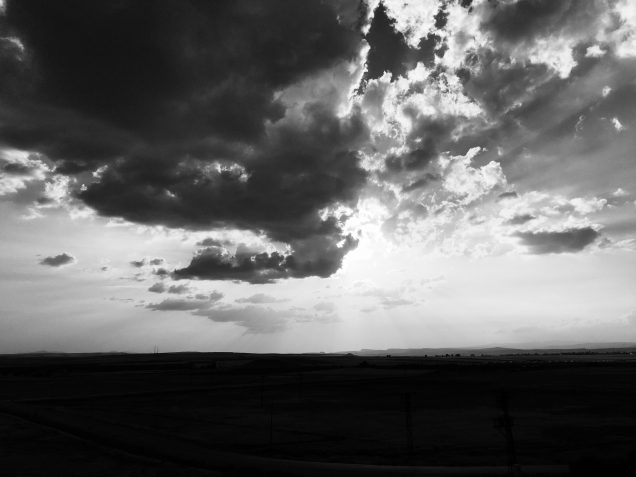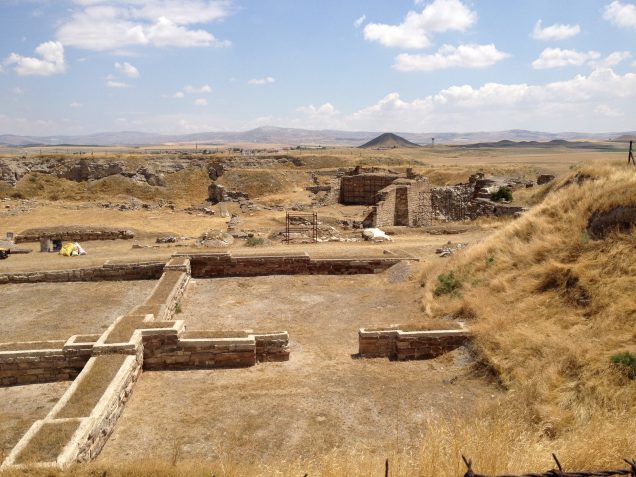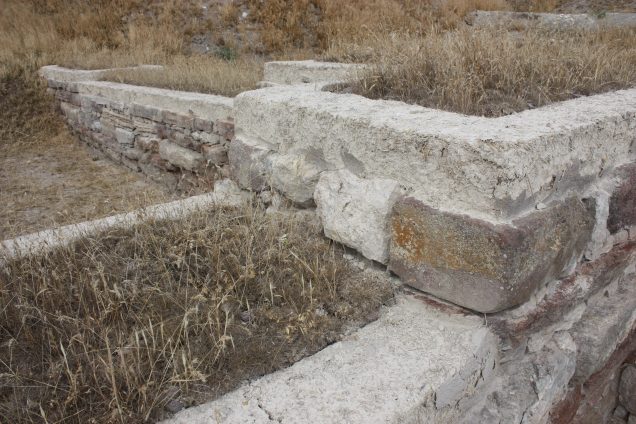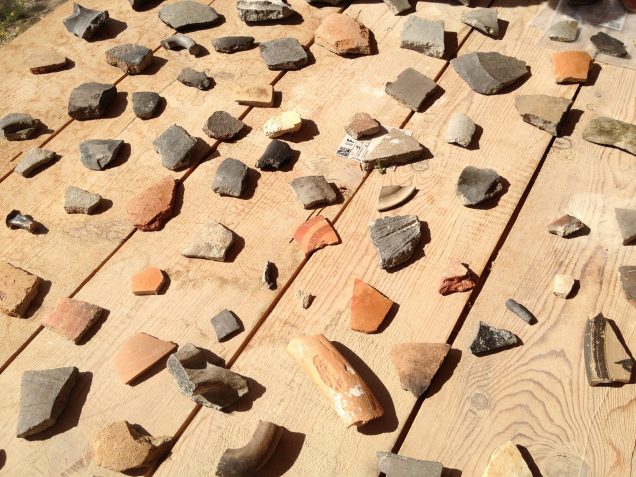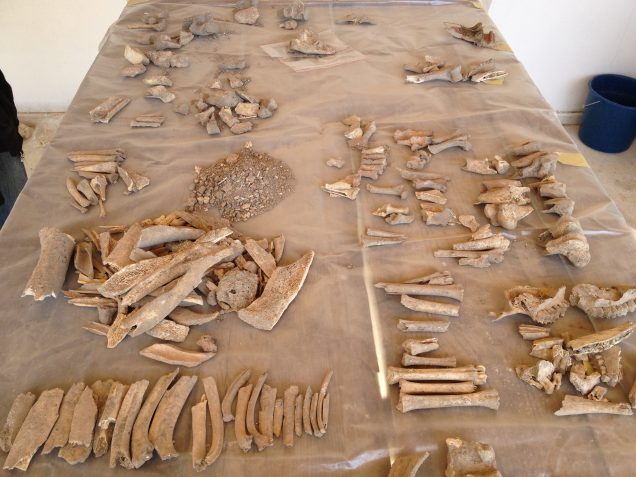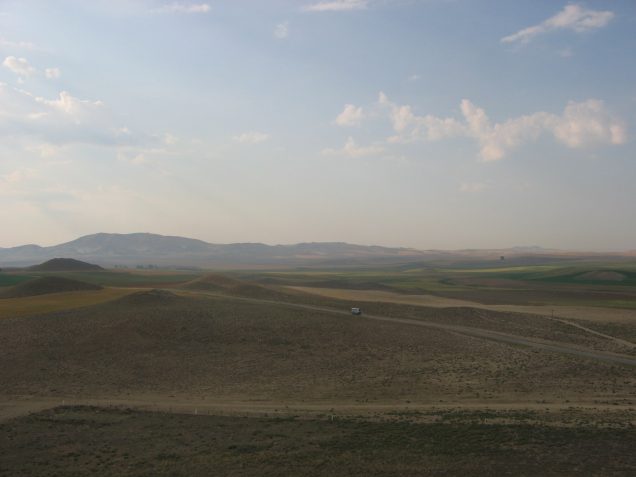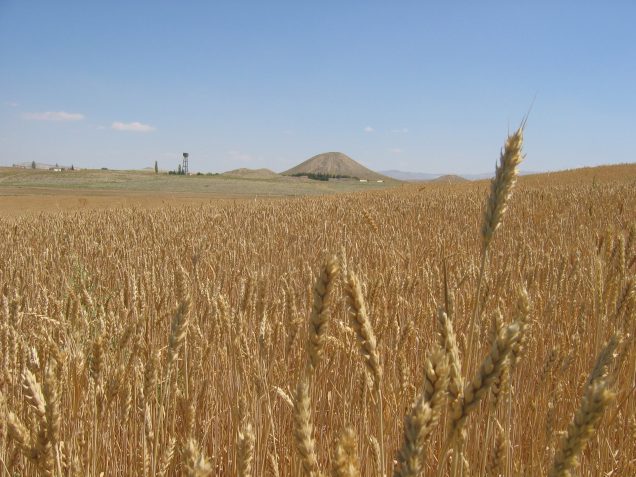Gordion
Project Overview
Situated 100 km southwest of Ankara, in central Turkey, the ancient site of Gordion is one of the most important archaeological sites in the Near East. With a history beginning in the Early Bronze Age (2500 BC), Gordion once served as the cultural and political capital of the Phrygian people (1200-700 BC). As such, the site is vital in helping archaeologists understand the lifeways of this ancient people. Associated with historical figures including King Midas and Alexander the Great, Gordion was a highly influential urban center for the surrounding area.
With excavations beginning in 1950, the University of Pennsylvania with various institutions has conducted over 30 annual excavation campaigns. Recent research has focused on refining the stratigraphy of the site and exploring areas which have not received significant investigation; the western side of the Citadel Mound and Lower and Outer Towns have revealed additional information about the occupants of the site. Analyses have included regional site survey, geomorphological studies, and paleoethnobotanical research. Collectively, these efforts have contributed to the understanding of the ancient physical and floral environment.
The paleoethnobotanical assemblage of Gordion is now the best published Near Eastern dataset from the Late Bronze Age through the Medieval period, with two books and more than a dozen articles exploring this important case study of ancient agriculture during multiple successive imperial periods. A new research initiative, funded by the National Science Foundation, uses isotopic analyses of plant, animal, and environmental samples to reconstruct mobility, location, and intensification of agriculture between the Late Bronze Age and Phrygian imperial periods.
For further information, see the project website.
Environmental Archaeology Lab Member Involvement
John M. Marston began his involvement with the Gordion Archaeological Project while completing his dissertation at UCLA, and continues to direct archaeobotanical research at the site. Ancient macrobotanical material from Gordion has contributed to students’ research, some of which has been funded through Boston University’s Undergraduate Research Opportunity Program (UROP). Through working at Gordion, student researchers have been exposed to a broad array of botanical material and gain identification and analytical skills. Alex Dorr and Peter Kováčik are NSF-funded trainees on the current isotope analysis project, leading efforts to recover carbon and nitrogen isotopes from carbonized wheat and barley grains.
Recent Publications
2019
Çakırlar, Canan, and John M. Marston. Rural agricultural economies and military provisioning at Roman Gordion (central Turkey). Environmental Archaeology 24(1):91-105.
2017
Marston, John M. Agricultural Sustainability and Environmental Change at Ancient Gordion. University of Pennsylvania Museum Press. Gordion Special Studies 8. 224 pp.
2015
Marston, John M. Modeling resilience and sustainability in ancient agricultural systems. Journal of Ethnobiology 35:585-605.
2014
Marston, John M., and Naomi F. Miller. Intensive agriculture and land use at Roman Gordion, central Turkey. Vegetation History and Archaeobotany 23:761-773.
2012
Marston, John M. Agricultural strategies and political economy in ancient Anatolia. American Journal of Archaeology 116:377-403.
Recent Presentations
2021
Marston, John M., Canan Çakırlar, and David Meiggs. “Agricultural dynamics of imperial ‘pauses’: a case study from Iron Age Anatolia” Paper presented at the 27th Annual Meeting of the European Association of Archaeologists
2019
Marston, John M. “Environmental legacies of imperial agricultural systems in ancient Anatolia” Paper presented at the Environmental Entanglements Colloquium, University of Western Ontario
2017
Çakırlar, Canan, and John M. Marston. “Provisioning and agricultural economy at Roman Gordion: integrating archaeobotany and zooarchaeology” Paper presented at the 13th Meeting of the Archaeozoology of Southwest Asia Working Group, International Council for Archaeozoology
Johnson, Emily S., and John M. Marston. “Elite feasting and monumental dedication at Early Phrygian Gordion, central Turkey” Poster presented at the 40th Annual Conference of the Society of Ethnobiology
Marston, John M., and Canan Çakırlar. “Provisioning and agricultural economy at Roman Gordion: integrating archaeobotany and zooarchaeology” Paper presented at the 82nd Annual Meeting of the Society for American Archaeology
2016
Marston, John M., and Emily Ubik. “Morphometric measurements of wheat and barley at ancient Gordion, Turkey” Poster presented at the 81st Annual Meeting of the Society for American Archaeology
2015
Marston, John M. “Reconstructing agricultural decision making from paleoethnobotanical remains” Paper presented at the 80th Annual Meeting of the Society for American Archaeology
Marston, John M. “Agricultural adaptation during imperial expansion: climate adaptation in Iron Age highland Central Anatolia” Paper presented at the 116th Annual Meeting of the Archaeological Institute of America
Ubik, Emily, and John M. Marston. “Agricultural implications of wheat and barley grain measurements at ancient Gordion, Turkey” Poster presented at the 38th Annual Conference of the Society of Ethnobiology

